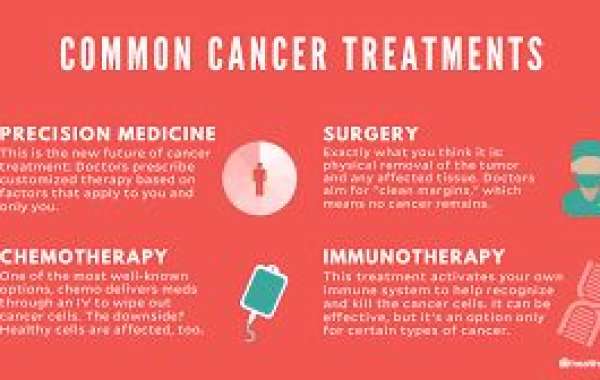Cancer treatment has seen groundbreaking developments in recent years, offering new hope to patients around the world. Once limited to surgery, chemotherapy, and radiation, cancer therapy now includes a diverse range of modern approaches aimed at targeting the disease more precisely, improving survival rates, and reducing side effects.
These cutting-edge treatments are not only changing the way doctors approach cancer care but are also improving the quality of life for millions. Here's a look at the latest advances in cancer treatment you should know about.
Immunotherapy: Training the Immune System to Fight Cancer
Immunotherapy is one of the most promising developments in oncology. It involves harnessing the body’s own immune system to recognize and destroy cancer cells. Treatments like checkpoint inhibitors and CAR T-cell therapy are showing remarkable results in certain types of leukemia, lymphoma, and melanoma. Unlike traditional chemotherapy, which kills both healthy and cancerous cells, immunotherapy offers a more targeted approach, often with fewer long-term side effects.
Targeted Therapy: Hitting Cancer Where It Hurts
Targeted therapy uses drugs designed to target specific genes or proteins that are involved in the growth and survival of cancer cells. These therapies are highly specific, making them more effective in some cases than traditional treatments. Drugs like tyrosine kinase inhibitors and monoclonal antibodies fall into this category. This approach is currently being used successfully in breast cancer, lung cancer, and certain blood cancers.
Liquid Biopsies: Revolutionizing Diagnosis and Monitoring
Traditional biopsies are invasive and not always ideal for monitoring progress. Liquid biopsies, on the other hand, are blood tests that detect cancer-related genetic material circulating in the bloodstream. They are now being used to help diagnose cancers earlier, track response to treatment, and detect recurrences faster than conventional imaging.
Personalized Medicine: Tailoring Treatment to the Individual
One of the most impactful innovations in cancer care is personalized medicine. With advances in genomics, doctors can now analyze a patient’s genetic profile and tailor treatment accordingly. This ensures that patients receive therapies most likely to be effective based on their unique genetic markers, minimizing the trial-and-error aspect of traditional treatment plans.
Proton Therapy: Precision Radiation Treatment
Proton therapy is a more precise form of radiation that targets tumors while sparing healthy surrounding tissues. It is especially beneficial for treating cancers near vital organs, such as brain tumors, prostate cancer, and pediatric cancers. Because of its precision, patients often experience fewer side effects and better long-term outcomes.
AI and Machine Learning in Cancer Research
Artificial intelligence (AI) and machine learning are playing a vital role in cancer diagnostics, treatment planning, and drug discovery. Algorithms can analyze vast datasets to identify patterns, predict outcomes, and even suggest treatment strategies that might not be immediately obvious to human researchers. AI is already being used to read medical scans, detect cancer early, and accelerate clinical trials.
Lifestyle and Complementary Therapies
Alongside medical advancements, there’s growing recognition of the role lifestyle plays in cancer recovery. Nutritional therapy, physical activity, mental health support, and natural supplements are being integrated with mainstream treatments to provide holistic care. For example, some patients using medications such as buy Tadalista 40mg One Week Pack for related health concerns are advised to consult with their oncologists to ensure that no interactions affect their treatment plan.
Conclusion
Cancer treatment is evolving rapidly, and these innovations are reshaping the future of cancer care. From immunotherapy to personalized medicine and AI-driven diagnostics, patients now have access to more effective and targeted treatments than ever before. Staying informed about the latest options not only empowers patients but also enables caregivers and families to participate more actively in the treatment journey.
As science continues to push boundaries, there is every reason to be hopeful. The more we learn about cancer, the closer we get to not just treating it—but beating it.








